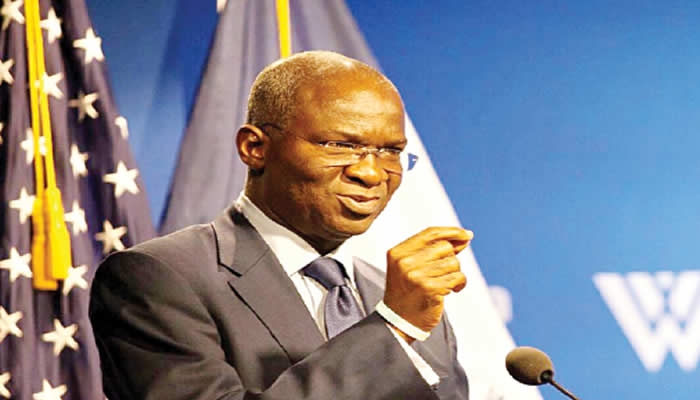
Minister of Works and Housing, Babatunde Fashola, has said that alternative funding remains a viable solution for public universities to generate revenue for themselves without depending on the government’s large coffers.
The minister stated this on Tuesday at an event organised by the House of Representatives themed, ‘Re-imagining Tertiary Education in Nigeria: Issues, Challenges and Solutions.’
According to a statement released on Wednesday and signed by the Ministry’s Director of Press, Mrs Blessing Adams-Lere, the minister noted that a printing press, consultancy services and poll results are credible funding proposals for tertiary institutions.
Fashola noted that collective funding of education is needed by various levels of government and not exclusive to the federal government as commonly insinuated.
He said, “University consultancy services, data provision, poll results, value data and printing press are value proposals of alternative for tertiary Institutions.
“Tertiary education is on the concurrent list, meaning that states and federal governments can fund education in the country.”
The former Lagos State governor also accused employees of tertiary institutions who want to be autonomous as a big challenge to the success of education in the country.
“Employees of government-owned institutions who want to be autonomous is a big issue we have to resolve,” he added.
While making his remarks, the Director General, Budget Office of the Federation, Benjamin Akabueze aligned with the position of minister stating, ‘‘There has to be sustainable funding of tertiary education. We can’t continue with the current system because it is not working and not sustainable.”
However, a Professor of the Department of Education Administration & Planning, University of Calabar, Uduak Ekpo, disagreed with the proposal saying that funding remains the function of the government and not academia.
“If lecturers run away from their core mandate of academic excellence through research and teaching and go into business, funding of the university, education will suffer,” she said.
Similarly, the President of the Academic Staff Union of Universities, Emmanuel Osodeke added, “The level of poverty in Nigeria would not allow Nigerian students to pay increased tuition fees.”




